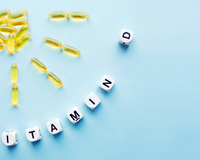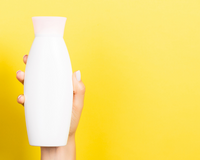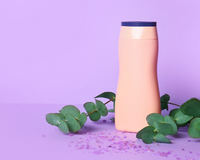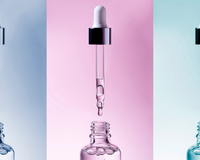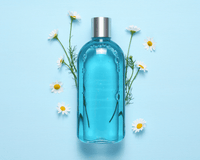Anti Aging Products For Sensitive Skin With Rosacea
Those with sensitive skin may find it hard to choose the right anti aging products for sensitive skin with rosacea. Put away any products that make your skin sensitive and start following the steps for caring for wrinkles on sensitive skin. Because sensitive skin tends to get dry, wrinkles often show up early.
Does your skin bother you because it's too sensitive? If so, you know that it's not always easy to find anti-aging skin care that meets all of your needs. You can keep your skin looking young and beautiful for a long time by understanding what makes it fragile, which gets worse as you get older, and using treatments made just for that.
What To Look For Anti Aging Products For Sensitive Skin With Rosacea?
Uneven skin tone is a sign of aging sensitive skin, so a dark spot corrector is a must if you want your skin to look brighter and younger. Other traditional signs of aging in the clinic are wrinkles, sagging skin, and discoloration. But there's more: sensitive skin is more likely to be red, which makes the skin's tone less even and makes it look older than it is.
Skin aging is caused by both things inside the body and things in the outside world. The effects of time on the skin are made worse by extremely sensitive skin. Because cell regeneration slows down with age, these things happen:
- Skin that looks dry
- Wrinkles on the surface of the skin that can be seen with the naked eye
- Firmness deterioration
- Deep wrinkles in the skin
- Some environmental influences are the sun, air pollution, and stress
- Help more people become free radicals
- Turn on the response to oxidative stress
- Loss of health in the cells
Sensitive skin is fragile and reacts easily. It can also have trouble with the tiny blood vessels in the face, which makes it red.
What Causes Aging In Sensitive Skin?
A big problem with getting older for people with sensitive skin is that their skin tone becomes less even. "Micro-inflammatory" stress speeds up the aging of the skin, which happens more often in people with sensitive skin. Even though it's not noticeable, it causes the fibers in the dermis to break down. This causes wrinkles and a loss of firmness. A recent study found that sensitive skin is more likely to get red than normal skin, no matter how old the person is. This redness makes the loss of even skin tone that comes with wrinkles and a loss of firmness over time even worse.
To get the best results for all skin types, it is smart to combine the actions of several active agents. But if you have sensitive skin, you need to use products that are made for that kind of skin. With Redermic, people with sensitive skin can now get a full anti-aging regimen that works better on all signs of aging. Clinical signs of aging that Redermic fixes are deeper wrinkles, age spots that show up early, thicker skin, and an uneven skin texture. And Redermic makes its effects against wrinkles, firmness, and uniformity even stronger.
Sun Exposure
Sunlight is a big reason why we get wrinkles, dry skin, and age spots as we get older. Your skin does alter as you get older. You might, for example, sweat less, which would make you feel drier. As you age, your skin gets thinner and loses fat, which makes it look less plump and smooth. Under the skin, things like veins and bones stand out more. When you get hurt, it may take longer for your skin to heal.
You can put off these changes if you stay out of the light. Even though there is no way to completely fix UV damage, the skin can heal itself. So, it's never too late to protect yourself from the bad effects of the sun.
Safe Ingredients For Anti Aging Products For Sensitive Skin With Rosacea
What are the main things that skin care products for sensitive skin that is getting older have in them Hyaluronic acid is one of the best things to use on sensitive skin. Why do you ask? Because our skin already has hyaluronic acid. In other words, it is a type of acid that our skin is used to. But starting in your 20s, the amount of hyaluronic acid in your skin starts to slowly go down. Especially after the menopause, the amount of hyaluronic acid in the body goes down in a big way.
Two anti-aging compounds that work better together. Dermatologists often use vitamin C and retinol, which are both active ingredients that slow the aging process. There is no doubt that retinol slows down the aging process. It has a great effect on the skin's surface, making the skin feel better, getting rid of flaws, and smoothing out wrinkles. Deep down, it does the same magic: it renews cells and makes more collagen and elastin. Vitamin C, on the other hand, is a powerful antioxidant that helps make collagen and keeps blood vessels strong. What are the pros of it? It fills in wrinkles, makes the skin tighter, and evens out the color of the skin.
How Should Age Spots Be Treated on Sensitive Skin?
Even though they are sometimes called "liver spots," age spots have nothing to do with the liver. These flat, brown spots are caused by years of being in the sun. They are bigger than freckles and show up on the face, hands, arms, back, and feet of people with fair skin who spend a lot of time in the sun. In medicine, they are called solar lentigo. Possible side effects include wrinkles, dry skin, thin skin, and rough spots.
Cryotherapy (freezing), laser therapy, and lotions that make the skin lighter or "fade" are some of the treatments available. Tretinoin cream has been approved to treat darker spots on the skin. Put on sunscreen or sunblock to stop more damage.
Shingles are a rash or blisters that appear on the skin and can be very painful. Shingles are caused by the varicella-zoster virus, which is the same virus that causes chicken pox. After a case of chickenpox, the virus stays dormant in nerve tissue. Years from now, the virus could come back as shingles. Anyone who has had chickenpox can get shingles, but people over the age of 50 are more likely to get it.


